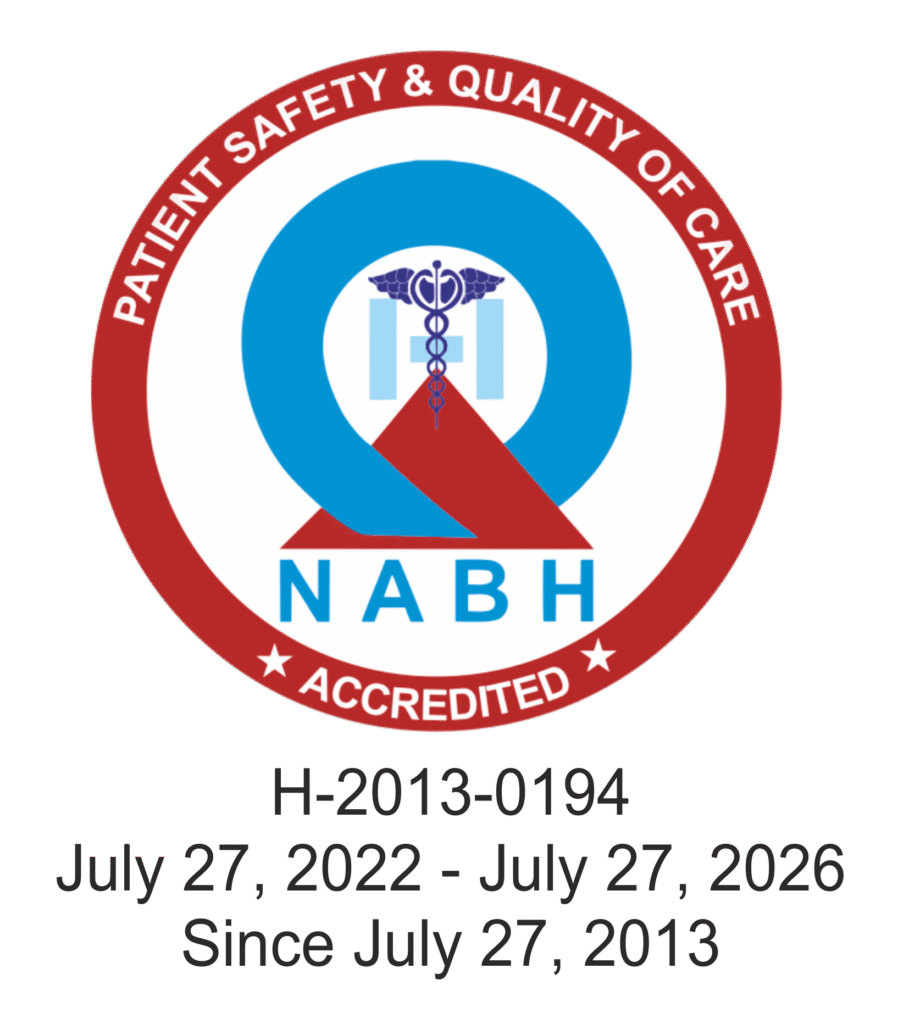Blood Center Overview
The Blood Center is a specialized facility that collects, tests, stores, and distributes blood and blood products for treatment purposes. It plays a vital role in saving lives and ensures a safe and continuous supply of blood to patients in need.

Core Services of a Blood Center Include
Donor Education and Motivation
Pre-donation counseling to encourage donation and explain the process. Post-donation counseling provides instructions on post-donation care and encourages future donations.
Donor Selection
Ensuring donors are physically fit and eligible to donate blood.
Blood Collection
Collected from voluntary and replacement donors in a comfortable, aseptic environment. Includes mobile blood donation camps and in-house donations from organizations involved in social service.
Donor Screening
Screening for infections such as HIV, Hepatitis B & C, Syphilis, and Malaria to ensure a safe blood supply.
Blood Grouping and Crossmatching
Ensuring compatibility between donor and recipient by matching blood groups.
Blood Component Preparation
Donor blood is separated into Red Blood Cells, White Blood Cells (Granulocytes), Plasma, Platelets, and Cryoprecipitate. One donation can save up to four lives.
Storage
Blood and components are stored in temperature-controlled refrigerators and deep freezers, with backup power for uninterrupted service.
Blood Issue and Transfusion Services
Timely supply of compatible blood and components to patients in need, with a focus on safety.
24/7 Services
Round-the-clock availability for emergencies such as accidents, surgeries, deliveries, and bleeding disorders.
Quality Control
Maintained through participation in Internal and External Quality Control programs to ensure performance standards.
Apheresis Services
Apheresis is a specialized medical technique using the high-end Spectra Optia system to separate and collect specific blood components such as plasma, platelets, or white blood cells from a donor or patient, while returning the remaining components back to the body. It is used both for donation and therapeutic purposes, benefiting the donor by collecting only the needed component.
Importance of Apheresis and Therapeutic Services
- Only the required cells are removed and utilized.
- Allows for targeted treatment with fewer side effects.
- Provides life-saving components in emergencies.
- Helps in managing critical and rare diseases.
- Yields higher volume of required cells.
- Minimizes exposure to multiple donors, reducing transfusion-related reactions.
- Enables customized care in cancer, kidney, and neurological conditions.
Clinical Applications of Apheresis Services
- Plateletpheresis: Platelets are collected to treat Dengue, certain cancers, and bleeding disorders.
- Plasmapheresis: Plasma is collected to treat autoimmune disorders, organ transplant rejection, and neonatal conditions.
- Leukapheresis: Granulocytes are collected for treating immunodeficiency disorders; excess white cells are removed in conditions like leukemia.
- Erythrocytapheresis: Abnormal/excess red cells are removed in polycythemia and sickle cell anemia.
- Therapeutic Plasma Exchange (TPE): Removes toxins and disease-causing substances from plasma, useful in neurological, hematological, and drug-induced conditions.





